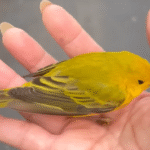A growing crisis is unfolding across the United Kingdom as veterinarians struggle to manage a wave of seriously ill cats suffering from a rare and often fatal condition. Concerns about toxic cat food have escalated after the Royal Veterinary College (RVC) reported more than 500 cases of pancytopenia in recent months.
The situation has become increasingly alarming, with the RVC confirming that a devastating 63 percent of these cases have proven fatal. This has left cat owners and veterinary professionals deeply concerned about the potential link to popular cat food brands.
Major Brands Recalled Amid Toxic Cat Food Investigation
Image by pexels
In mid-June, a product recall was issued for various batches of cat food manufactured by Fold Hill Foods. The recall encompasses several widely used brands including Applaws and AVA (a Pets at Home brand), along with Sainsbury’s hypoallergenic cat foods.
Despite the recall, many cat owners remain unaware of the potential danger lurking in their pets’ food bowls. This communication gap has created a dangerous situation where cats may still be consuming potentially toxic cat food from recalled batches.
The Food Standards Agency (FSA) and the Royal Veterinary College are conducting an urgent investigation into the outbreak. However, they have not yet been able to definitively confirm the exact cause of the alarming number of deaths.
Some preliminary findings suggest the illness could be linked to compounds naturally produced by fungi, known as mycotoxins, that might have contaminated the food products.
Pet Owners Devastated by Losses from Suspected Toxic Cat Food
Steven Barrett’s heartbreaking experience exemplifies the tragedy many cat owners are facing. His cat Freyja, who had only ever eaten Applaws, became ill for approximately five days before sadly passing away on Tuesday.
What makes Steven’s story particularly troubling is that he had heard nothing about the product recall until he tried to purchase more of his cat’s regular food. Only then, when he found it unavailable, did he begin investigating.
“My heart went through the floor,” Steven said. “She was a member of our little family, which is how we treated her. I just wanted her to have the best food.”
When Steven tried to get veterinary care for Freyja, he discovered that appointments were scarce due to the high volume of similar cases. “When the receptionist heard the name of the cat food she just told me to get an emergency appointment at another vet. I took her yesterday and she was dead by the end of the day.”
Concerns Grow About Reach of Toxic Cat Food Alert
Image by pexels
A significant concern among veterinarians and animal welfare advocates is that the full scope of the toxic cat food problem may be much larger than currently known. Many cat owners purchase dry food in bulk, meaning potentially contaminated products could remain in homes for weeks or months.
“My worry is that a lot of cat owners bulk buy dry food and this is a massive recall, so there could be toxin in bags of dried food that will be opened and given to cats and more cats will die,” Steven warned.
The situation is particularly dangerous for indoor cats who may exclusively consume a single brand of food, potentially exposing them to continuous doses of whatever toxin might be present in the recalled products.
Manufacturer Response to Toxic Cat Food Allegations
Fold Hill Foods, the manufacturer of the recalled products, has issued a statement regarding the situation. “As stated by the FSA, there is no definitive evidence to confirm a link at this stage between the cat food products and feline pancytopenia,” a spokesperson said.
“We continue to fully cooperate with both the FSA and the RVC as they continue to investigate all potential causes of the pancytopenia cases, feed and non-feed related,” the statement continued.
The company emphasized their personal connection to the crisis, adding, “As cat owners ourselves, we fully understand how upsetting and stressful this situation is and the urgent need to establish why there has been an increase in cases of pancytopenia in the UK.”






